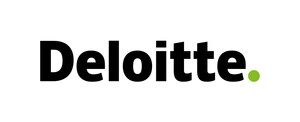
Deloitte Debate: Merge Fast, or is Patience a True Virtue?
NEW YORK, Feb. 11 /PRNewswire/ --
What: “M&A Integration: Fast or Slow?"
Who: Jessica Kosmowski, principal, Deloitte Consulting LLP
Larry Montan, director, Deloitte Consulting LLP
Iain Bamford, senior manager, Deloitte Consulting LLP
Frances Yu, senior manager, Deloitte Consulting LLP
When: Available immediately
Where: www.deloitte.com/us/maintegrationdebate
Details: Integrating separate entities is vital to a successful merger
and acquisition.
Since an integration plan usually identifies the desired end
state early on, why delay the process of getting there? In
practice, determining the best pace for integration is not that
simple, particularly when it comes to managing customers
through the integration maze. When is faster better? When does
patience pay off?
“Every integration process has unique requirements, but in most
cases, parties inside and outside the new organization benefit
more from a speedy marriage,” said Kosmowski. “Most important
are the measurable benefits that the parties sought when they
initiated the new relationship — whether expressed in terms of
economies of scale and the resulting cost reductions, market
growth, a simple intellectual property play or whatever other
factors made the combination a good idea in the first place.
The sooner those results arrive, the sooner integration becomes
accretive.”
Kosmowski noted that fast, effective M&A integration, however,
takes more than simply choosing a pace. “Speed invites error,
increases execution risk and often makes mistakes more costly.
The key is smart integration and that requires careful planning
before the process begins; careful, aggressive execution while
under way; and organization-wide discipline.”
Bamford, Montan and Yu spice up the debate with perspectives
from the financial services, technology and healthcare and life
sciences sectors, respectively:
- Financial Services. The principles that make a fast process advisable for financial mergers also apply in other arenas when a distressed property is acquired. Whenever customers, employees and stakeholders need reassurance, a protracted mating dance is not the answer.
- Healthcare/Life Sciences. Many health and biotech mergers find the acquirer entering a young, emerging market by absorbing a smaller, more agile player that has made rapid strides in carving out new territory. And, these smaller players have worked hard to develop solid customer and distributor relationships — often relying less on their brand and company muscle and more on high-touch sales and service. Their customers and distributors will not wait long for the newly acquired and integrated company to get its act together.
- Technology. From a top-line perspective, there is tremendous pressure for fast integration to "stop the ice cube from melting" — to minimize M&A-related revenue leakage and customer churn. Following through with quick decisions and clear communication can help empower the sales force and improve the Day One experience of both customers and employees.
To view Deloitte's points and counterpoints regarding M&A integration and related issues, please go to www.deloitte.com/us/maintegrationdebate.
This topic is one in a series of Deloitte Debates that examine pressing business issues from multiple perspectives. New debate topics are added weekly. To view the full library of Debates, please visit www.deloitte.com/debates.
About Deloitte
As used in this document, "Deloitte" means Deloitte Consulting LLP and Deloitte Services LP, separate subsidiaries of Deloitte LLP. Please see www.deloitte.com/us/about for a detailed description of the legal structure of Deloitte LLP and its subsidiaries.
Contact: |
|
John La Place |
|
Public Relations |
|
Deloitte |
|
+1 212 492 4267 |
|
SOURCE Deloitte






Share this article